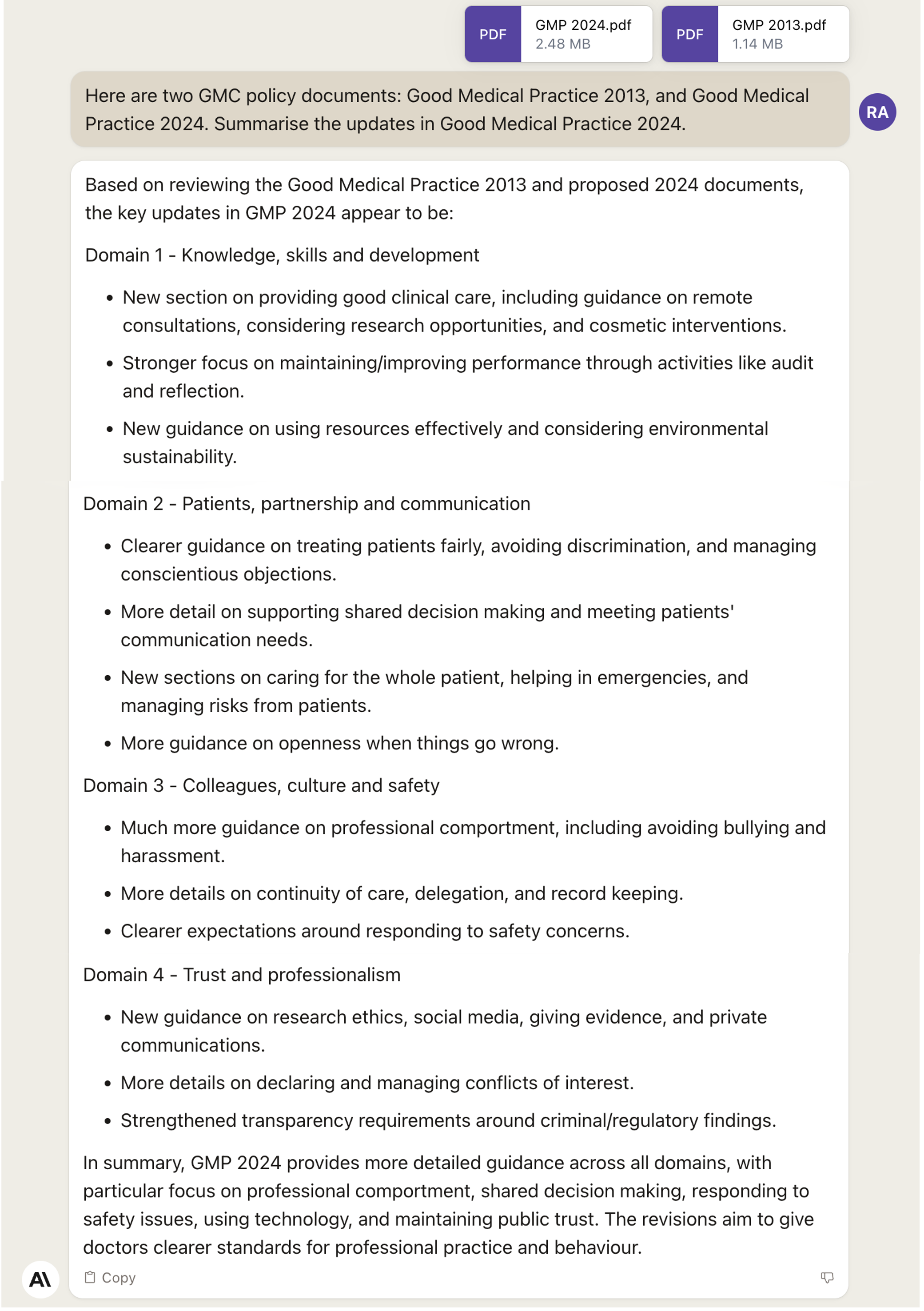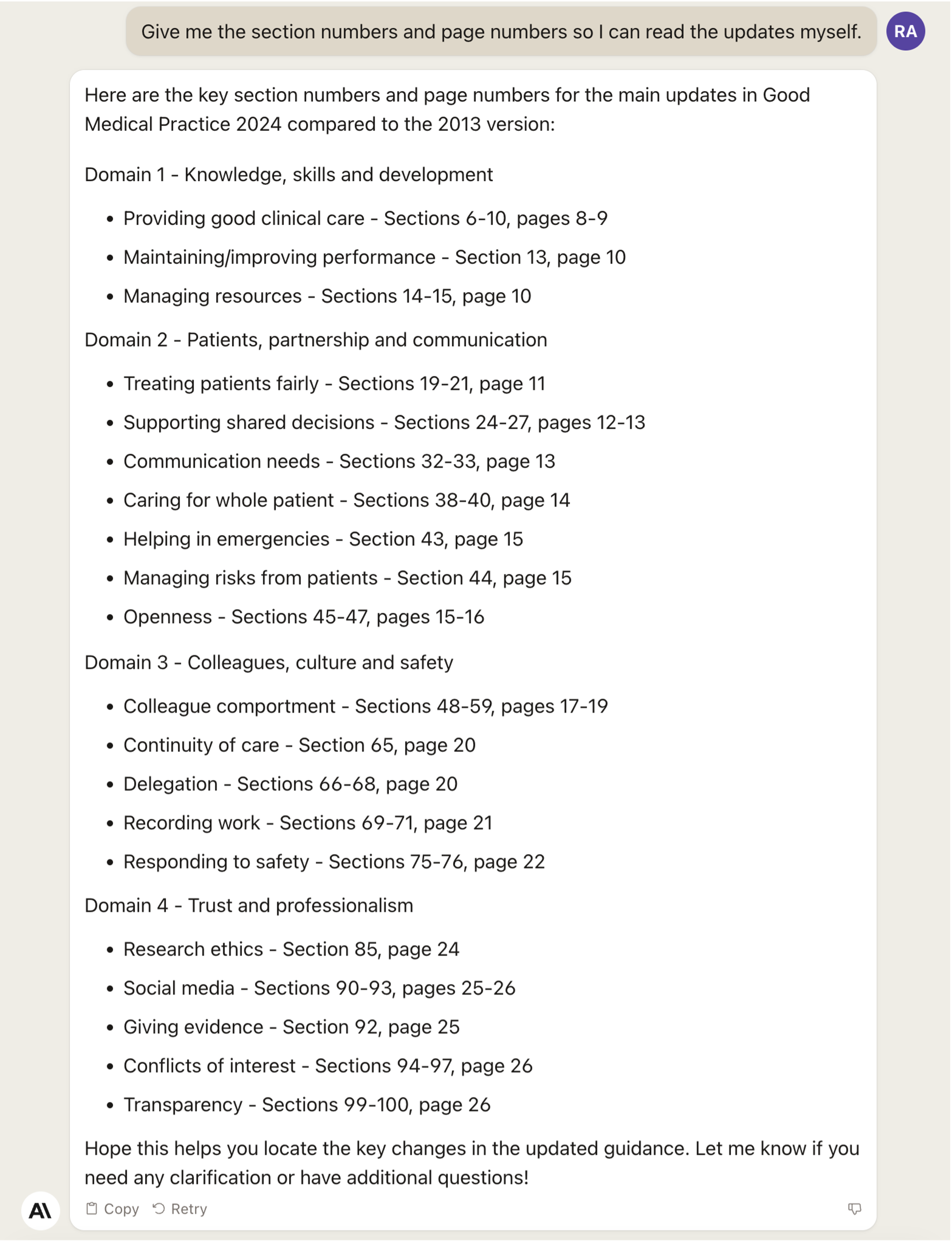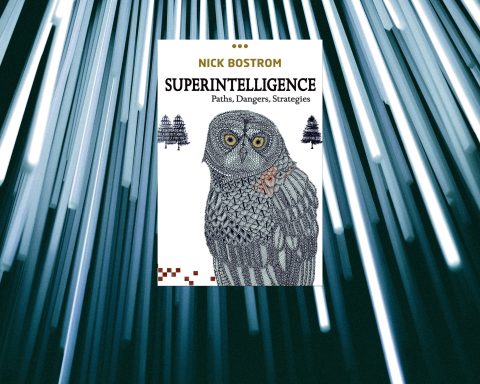
As doctors practicing in the UK, all readers are likely to be deeply familiar with the General Medical Council’s (GMC’s) document, Good Medical Practice (GMP).
GMP describes what it means to be a good doctor, and describes the professional values and behaviours that the GMC expects its registered doctors to abide by. The document was first published in March 2013,1 and came into effect in the following month. In addition to one page describing ‘Professionalism in action’, it contains 80 sections across four domains, and is adorned by 30 endnotes.
GMP 2013 is due to be replaced by the updated version — Good Medical Practice 20242 — on 30 January 2024. GMP 2024 was published on 22 August 2023, and contains 101 sections across four domains in addition to one page of duties and eight footnotes. While all doctors are familiar with the existing guidance, the GMC states that it is ‘important to familiarise yourself with the updated standards before they come into effect on 30 January 2024’.3
The GMC briefly outlines the updates in GMP 2024, and lists them as helping doctors to:
• ‘create respectful, fair and compassionate workplaces for colleagues and patients
• promote patient centred care
• tackle discrimination
• champion fair and inclusive leadership
• support continuity of care and safe delegation.’3
To familiarise myself with the details of these updates — which are dispersed throughout the 30-page document — I appealed to the abilities of my new acquaintance, Claude.
Claude is a large language model (or LLM — a type of artificial intelligence, or AI) developed by Anthropic, which describes itself as ‘an AI safety and research company [that builds] reliable, interpretable, and steerable AI systems’.4
The current version of Claude — Claude-2 — was released to the public in July 2023. It was trained on over 130 billion parameters (which is similar to competing LLMs such as OpenAI’s ChatGPT and Google’s Bard) and is free to access (although usage is limited, while Claude Pro — which costs £18 per month — allows much greater usage and priority access to the model during high-traffic periods).
While it does not have direct access to the open internet (unlike Bard), and while it cannot accept speech inputs (unlike ChatGPT and Bard), Claude’s context window (the amount of data it can receive and process in a single prompt) is around 50 times larger than that of ChatGPT and Bard (Claude is limited to 100 000 tokens, while ChatGPT and Bard can handle up to 2048 tokens), and it can extract text from PDF and TXT files that are attached to the user interface (neither ChatGPT nor Bard have this functionality).
Within the LLM AI space, this makes Claude uniquely able to deal with external documents that contain large volumes of text. As a stark example of its capability, Claude accurately and concisely summarised my 20 000-word medical ethics masters dissertation — which I attached to the interface as a PDF document — within 15 seconds.
I tasked Claude with summarising the updates in GMP 2024. I did this by downloading GMP 2013 and GMP 2024 in PDF form, attaching them to Claude’s user interface, and giving it the following prompt: ‘Here are two GMC policy documents: Good Medical Practice 2013, and Good Medical Practice 2024. Summarise the updates in Good Medical Practice 2024’. Within 10 seconds, Claude provided the response in Figure 1.

I then prompted the LLM with the following: ‘Give me the section numbers and page numbers so I can read the updates myself’. Once again, within 10 seconds, Claude responded with the text shown in Figure 2.
The ability of Claude to rapidly process, accurately interpret, and concisely summarise large quantities of textual data, and the convenience it offers by accepting PDF attachments, is utterly staggering. This tool serves to save its users significant amounts of time by assisting them in navigating through large textual documents, condensing their contents, and providing this information in easily-understandable natural language.
With the ongoing rapid development of user-friendly AI (it’s hard to believe that ChatGPT was released to the public less than 11 months ago5), and with multiple new LLMs entering the space as competitors (such as Meta’s Llama 2, Microsoft’s Bing AI, and Quora’s Poe), the capabilities of Claude are likely to expand in the coming months, such as the ability to receive and provide speech-modality data, deal with code, image, and graphical information, and directly access the open internet.
Even today, however, Claude offers GPs enormous time-saving advantages through the processing, interpretation, and summarisation of cumbersome textual files, such as clinical guidelines, research papers, and policy documents.
While user trust in Claude and other LLMs is understandably and appropriately not yet 100% (I recommend that all doctors read GMP 2024 from cover-to-cover themselves rather than relying exclusively on LLM tools), their power and utility is undeniable.
In October 2023, Claude’s abilities with PDF files are just the latest reason for why GPs should become not only familiar with, but frequent, enthusiastic, and savvy users of, the evolving tapestry of user-friendly LLMs.
References
1. General Medical Council. Good medical practice. 2013. https://www.gmc-uk.org/-/media/documents/good-medical-practice—english-20200128_pdf-51527435.pdf (accessed 18 Oct 2023).
2. General Medical Council. Good medical practice 2024. 2023. https://www.gmc-uk.org/-/media/documents/gmp-2024-final—english_pdf-102607294.pdf (accessed 18 Oct 2023).
3. General Medical Council. Get to know good medical practice 2024. 2023. https://www.gmc-uk.org/ethical-guidance/good-medical-practice-2024/get-to-know-good-medical-practice-2024 (accessed 18 Oct 2023).
4. Anthropic. Company. https://www.anthropic.com/company (accessed 18 Oct 2023).
5. OpenAI. Introducing ChatGPT. 2022. https://openai.com/blog/chatgpt (accessed 18 Oct 2023)
Featured photo by Olga Tutunaru on Unsplash.









